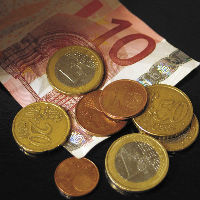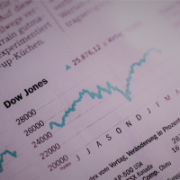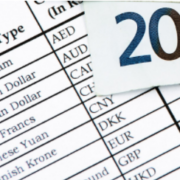Rainy day funds and moral hazards
| 28-03-2018 | treasuryXL |
 Christine Lagarde – the chief of the IMF – stated recently that the Eurozone countries should set up a “rainy day” fund that could be used to protect the countries in a time of economic turmoil. As the IMF is seen as the lender of last resort to the world, her words carry weight. Economies are subject to a cyclical motion – going from bad to good and then back down again. Her opinion is that closer integration is needed between the Eurozone countries to protect them from the inevitable downturn when it arrives.
Christine Lagarde – the chief of the IMF – stated recently that the Eurozone countries should set up a “rainy day” fund that could be used to protect the countries in a time of economic turmoil. As the IMF is seen as the lender of last resort to the world, her words carry weight. Economies are subject to a cyclical motion – going from bad to good and then back down again. Her opinion is that closer integration is needed between the Eurozone countries to protect them from the inevitable downturn when it arrives.
Closer Integration
To achieve this target, it would require at least the following steps:
- Closer banking union – more mergers
- Unified capital market
- Universal deposit protection scheme that is pan-european
- Integration towards a common tax system
Her speech closely echoes that of her fellow countryman – President Macron. However, whilst receiving support from Mrs. Merkel when making his remarks, he also met with objections from other member states. Countries such as the Netherlands and Sweden voiced their objection to what they perceived as “far reaching” policies, whilst ignoring the fundamental problems and issues within the Eurozone. Their concerns are centred around the public perception of the Eurozone – there has been a growing tide of populist sentiment expressed at recent general elections, together with the continued fallout from the financial and sovereign debt crises that has impacted on the economic well being of the citizens.
Implementation of this policy – according to the IMF – would entail an annual contribution of about 0.30-0.35% of GDP per member state into a common fund. This fund would then pay out in the event of an economic downturn. Given the aforementioned level of disenchantment among citizens, it would not be easy to implement this policy within every member state. Furthermore, whilst pay outs would be conditional on member states meeting certain criteria, the Eurozone has shown in the past that their criteria has been ignored and no sanctions were enforced.
This common fund, whilst being ring fenced, could have an impact on the functioning of financial markets. Just knowing that there is a fund that needs to earn a return could led to distortions in money markets. Also, who decides when a member state can draw down from the fund – the EU, the ECB, majority decision of member states?
And then there is the potential problem of moral hazard. A country could pursue policies that are imprudent, safe in the knowledge that there was a communal fund to save them. Given the record of certain member states since even before the inception of the Euro to deceive, this is not a matter to be taken lightly. Even when countries have be found to have cheated they have always received the help that they need, regardless of all the stated criteria that are in place. Countries that are performing well will have to pay proportionally more into the fund than countries whose economies are not doing so well.
10 years since the start of the crisis and almost 20 years since the introduction of the Euro, we are no closer to a collective harmony than before.
[button url=”https://www.treasuryxl.com/contact/” text=”Contact us” size=”small” type=”primary” icon=”” external=”1″]
[separator type=”” size=”” icon=””]









